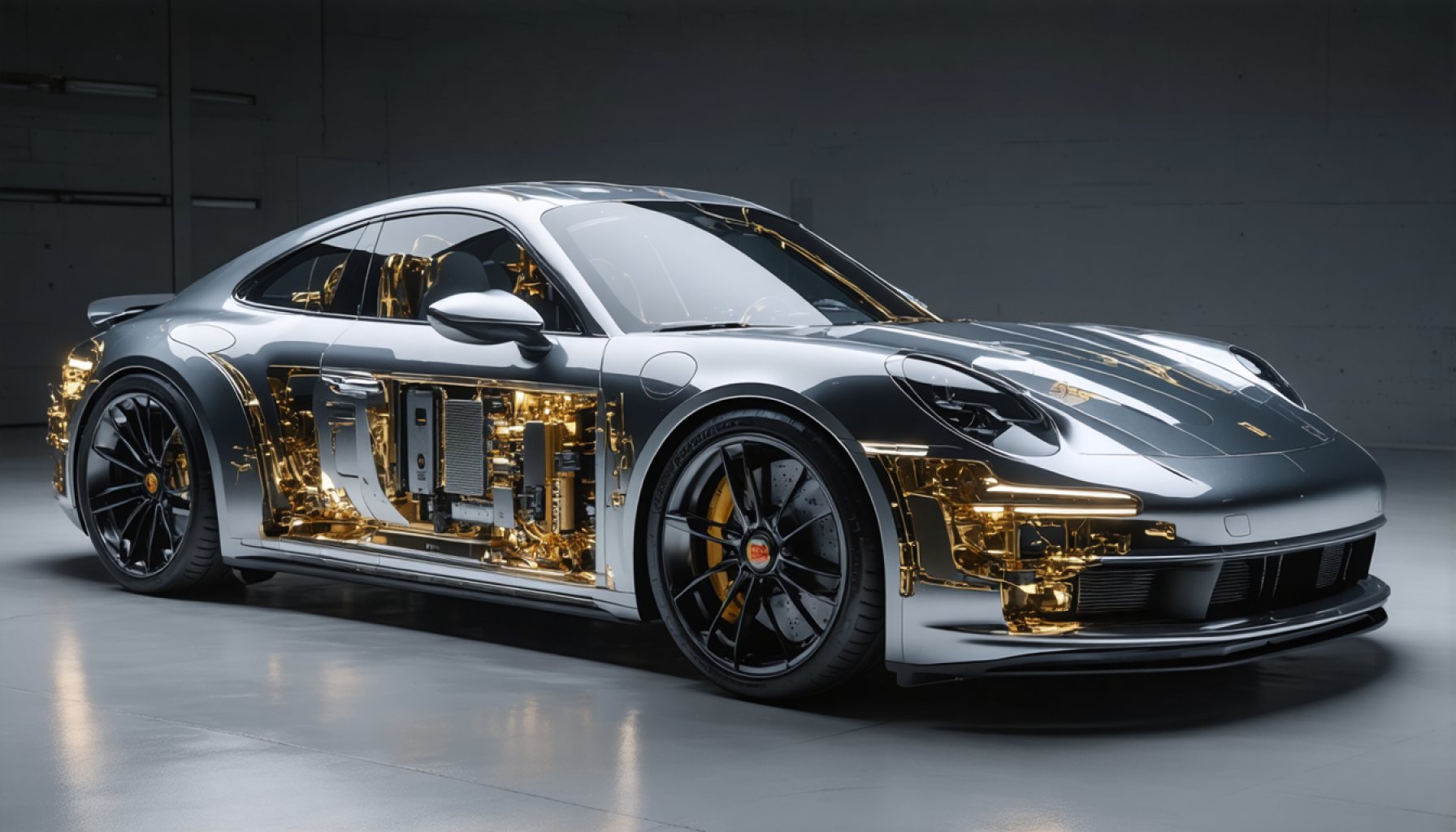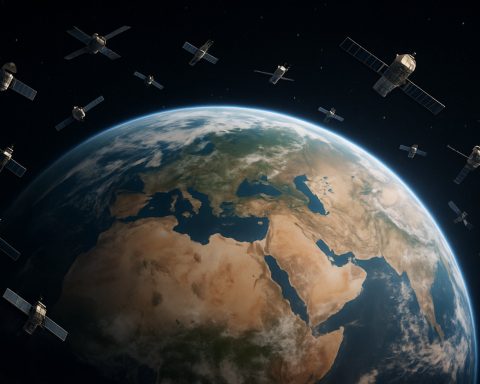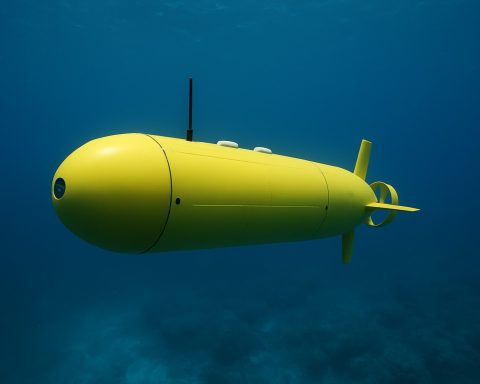- Porsche is pioneering a new life cycle model for EV batteries through a circular economy approach.
- In a cutting-edge project, Porsche transforms used batteries into “black mass,” rich with raw materials like nickel, cobalt, manganese, and lithium.
- The innovative process includes refining these materials to meet Porsche’s high standards for quality, ensuring their reuse in new energy cells.
- By using recycled materials in battery production, Porsche redefines sustainable luxury while addressing future European Union battery regulations.
- Porsche’s initiative secures raw material supply amid geopolitical challenges, emphasizing resilience and environmental stewardship.
- This strategy showcases Porsche’s commitment to sustainability, blending ecological responsibility with high-performance automotive design.
Porsche is not just crafting sleek vehicles on the asphalt but pioneering an ambitious mission to redefine the life cycle of electric vehicle (EV) batteries. In a multi-phase pilot project, Porsche aims to transform high-voltage battery waste into a treasure trove of critical materials, spotlighting an innovative circular economy journey.
Imagine a mechanical symphony where worn-out batteries are dismantled and churned into “black mass”—a dark, granular byproduct brimming with raw materials like nickel, cobalt, manganese, and lithium. This audacious alchemy has already yielded about 65 tonnes from trial batteries, setting the stage for Porsche’s electrifying ecosystem shift.
Every fragment of this “black mass” undergoes meticulous refinement. Porsche’s goal is no less than extracting pure, performance-ready elements that will fuel the next generation of EVs. The company emphasizes that precision in refining these materials is paramount, ensuring that every bit meets Porsche’s rigorous standards for quality and performance.
The final act of this transformative play will witness these recycled elements reinvigorating new energy cells. By initializing battery production that partially relies on recycled content, Porsche is essentially rewriting the rules of sustainable luxury.
Barbara Frenkel, a strategic powerhouse on Porsche’s Executive Board for Procurement, highlights this initiative as a linchpin of their envisioned circular economy—a testament to Porsche’s dedication to sustainability. Beyond ecological benefits, the approach is crafted to secure a steady stream of raw materials amid complex geopolitical landscapes, fostering resilience in an unpredictable future.
This forward-thinking blueprint also anticipates new European Union battery regulations, slated for 2031, which will demand savvy resource use and stringent recycling standards. By leaping ahead, Porsche not only embeds environmental stewardship within its DNA but also fortifies its pioneering role in the realm of sustainable automotive production.
Porsche’s venture into this recycling odyssey is more than a path to ensuring material longevity; it’s a bold statement. The strategy showcases an undeniable commitment to redefining luxury with a conscience, inspiring a shift that promises both innovation and preservation.
Ultimately, Porsche’s initiative is an electrifying tale of harnessing waste, sculpting it into invaluable raw materials, and paving the road to a future where sustainability and performance harmonize seamlessly.
Porsche’s Battery Recycling Revolution: What You Need to Know
Introduction
Porsche is accelerating toward a sustainable future with an ambitious initiative aimed at revolutionizing the life cycle of electric vehicle (EV) batteries. Through a multi-phase pilot project, the luxury automobile manufacturer is not only crafting sleek vehicles but also pioneering a circular economy for EV batteries. This project transforms high-voltage battery waste into valuable materials, underscoring an innovative approach to sustainability.
How Porsche is Redefining EV Battery Recycling
1. The Process: Porsche aims to dismantle and process used EV batteries into “black mass,” a granular byproduct rich in critical raw materials such as nickel, cobalt, manganese, and lithium.
2. Precision Refinement: Each element of the “black mass” is meticulously refined to extract high-purity materials. Porsche ensures that these elements meet stringent standards necessary for the performance of new EV batteries.
3. Circular Economy Vision: The refined materials are reinvigorated and used to produce new energy cells, integrating recycled content into battery production.
4. Sustainability Leadership: This endeavor aligns with forthcoming EU battery regulations (to take effect in 2031) and strengthens Porsche’s leadership in sustainable automotive manufacturing.
Benefits and Insights
– Ecological Impact: Recycling these materials significantly reduces the demand for newly mined resources, minimizing the environmental footprint of EV production.
– Geopolitical Resilience: By securing a stable supply of raw materials through recycling, Porsche mitigates risks associated with volatile global supply chains.
– Performance Assurance: Porsche’s commitment to quality ensures that recycled materials meet performance requirements, maintaining the brand’s luxury and reliability standards.
Potential Challenges and Limitations
– Technology and Infrastructure: Developing and scaling the technology needed to efficiently process EV batteries remains a significant hurdle.
– Economic Viability: The cost-effectiveness of battery recycling processes may affect widespread adoption.
Market Trends and Predictions
– Growth of EV Market: As demand for EVs rises, the importance of efficient battery recycling solutions will grow. Porsche’s initiative positions it as a leader in this expanding market.
– Regulatory Influence: Stricter environmental regulations worldwide will likely fuel the adoption of similar recycling practices across the automotive industry.
Practical Takeaways
– Consumer Decisions: For eco-conscious consumers, Porsche’s sustainability initiatives could be a differentiating factor when choosing EVs.
– Industry Implications: Competitors may need to adopt similar circular economy strategies to stay competitive and comply with evolving regulations.
Conclusion and Quick Tips
Porsche’s venture into innovative battery recycling is a blueprint for sustainable luxury, balancing performance with environmental stewardship. Here’s how you can get involved:
– Stay Informed: Keep up with the latest developments in EV technology and recycling.
– Support Sustainable Brands: Consider the sustainability practices of automakers when making purchase decisions.
– Advocate for Sustainability: Encourage policies and practices that promote recycling and sustainable resource use.
For more on Porsche’s innovative approaches and their impact on the automotive industry, visit the official Porsche website.









